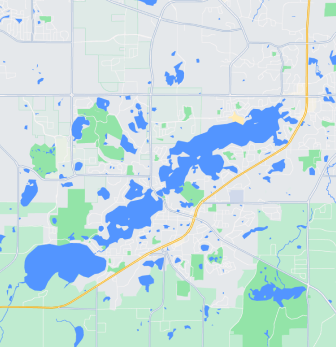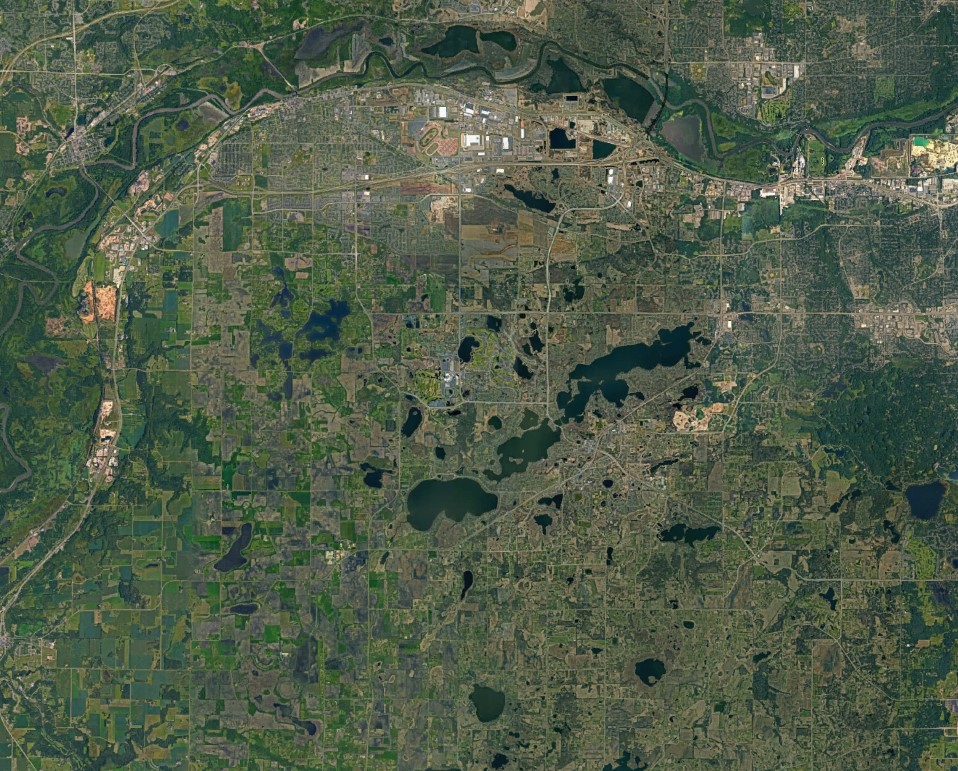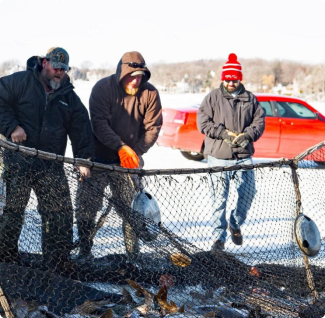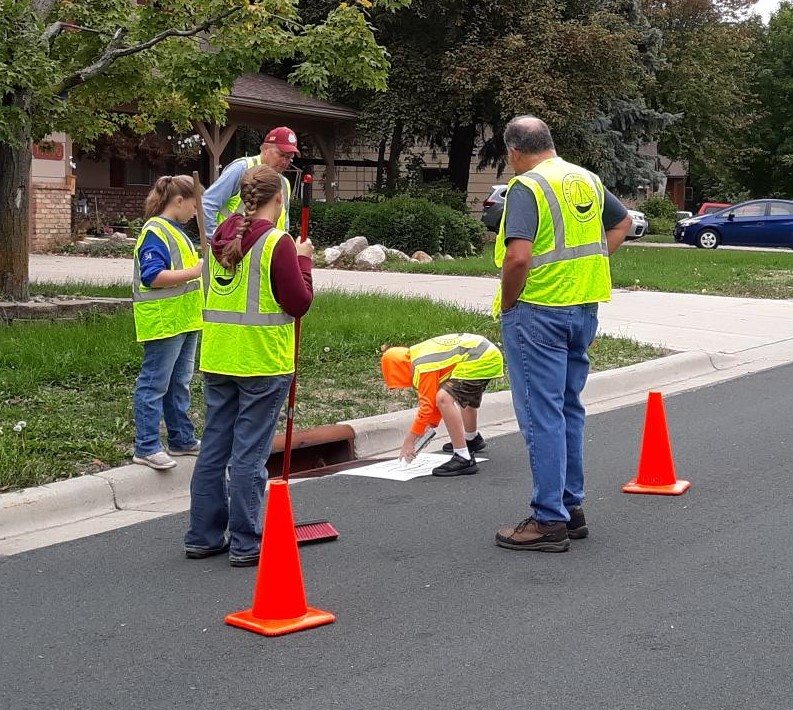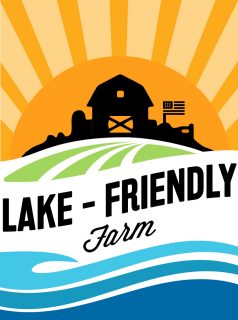Farmer-Led Council
Farmers are leading the way in land stewardship to protect our waters.
The Farmer-Led Council (FLC) is comprised of local farmers who develop and guide the implementation of strategies that the PLSLWD will use to accomplish agriculture’s share of the nutrient reduction goal. Agricultural lands make up the majority of the land in the Spring Lake and Upper Prior Lake watersheds. As such, farmers are the most important stewards of the land and their active input and participation is critical to achieving water quality goals.
Roles & Responsibilities
The role of the FLC is to develop and guide the implementation of strategies that PLSLWD will use to accomplish agriculture’s share of the nutrient reduction goal. Specifically, the FLC will:
- Inform decision makers and the general public about practical issues and opportunities related to soil and water conservation on agricultural lands
- Identify base-level and site-tailored practices that are available and needed
- Define the approach for engaging with and assisting farmers to implement practices
- Establish a schedule with reasonable milestones and timelines for progress
- Identify potential barriers to implementation, along with tools and resources needed to overcome them
Join the FLC
If you are interested in joining the Farmer-Led Council or would like more information, please contact SWCD, at 952-492-5425.
Crop Cover Initiative
Cover crops are quick-growing crops, such as winter rye, radishes, turnips, rape seed, cereal rye and clovers, which are planted during or between periods of regular crop production. Cover crops can help increase productivity and profitability, and help improve soil health and water quality in the watershed.
Benefits to Farmers:
- Keeps soil on the field by helping prevent soil erosion from wind and water
- Builds soil organic matter
- Reduces soil compaction
- Suppresses weeds & attracts beneficial insects
- Provides nitrogen to the following cash crop
- Helps retain moisture
- Creates wildlife habitat for hunting and wildlife observation
- Produces overwinter forage for livestock
How Can I Learn More?
The Watershed District partners with Scott Soil & Water Conservation District to help with the Farmer-Led Council incentives.
Learn from other farmers in the area and talk with them about their experiences with cover crops. Vern Wick, a dairy farmer in Jordan, planted cover crops for the first time in 2017 and has been pleased with the results he has seen so far. He has seen very little erosion on his cover cropped fields and notes that “planting cover crops makes sense for our land. Before we were destroying the soil, and now we are helping it out.” Not only that, but he saw no drop in yield.
Cover crops have been a win-win on his farm. Vern has advice for anyone considering cover crops: “Go to seminars, talk to other people who have tried it, get as much information as you can, then figure out how it can work for you.” Vern’s experience with cover crops was highlighted by the Scott Soil & Water Conservation District here.
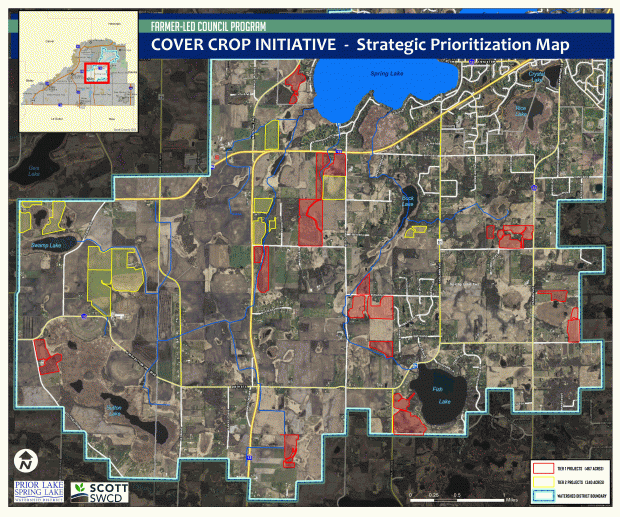
Further Reading & Resources
- Building Soils for Better Crops – SARE
- This excellent online resource in broken down into many sections (listed in the left sidebar on their page) covering a wide range of topics including a few selections listed below:
- Organic Matter: What is it & Why is it Important? – SARE
- How do you Build a High Quality, Healthy Soil? – SARE
- Managing for High Quality Soils: Organic matter, Soil physical condition, Nutrient availability – SARE
- Cover Crops – SARE
- Includes sections on Benefits, Selection, Types, and Management of cover crops.
- This excellent online resource in broken down into many sections (listed in the left sidebar on their page) covering a wide range of topics including a few selections listed below:
- Talking Cover Crops with Steve Trnka (local farmer with cover crops) – Rice Soil and Water Conservation District
- Managing Manure Nitrogen with a Cover Crop – U of M Extension
- Tips for Interseeding Cover Crops on Your Farm – La Crosse Seed
- To Feed the World Sustainably, Repair the Soil – Scientific American
Lake-Friendly Farm Program
The Lake – Friendly Farm Program has been created to recognize the farmers that are doing an outstanding job of managing their farms in a way that protects the water resources in the Prior Lake-Spring Lake Watershed District. The program both identifies and publicly recognizes existing best management practices in the watershed and assists farmers in identifying areas for improvement to help protect our water resources.
Program Goals
- Publicly recognize and reward farmers who do an outstanding job of managing their farms in an economically and environmentally sound way that protects and improves water resources within the Prior Lake-Spring Lake Watershed District.
- Publicize and promote agricultural best management practices that help improve water quality while maintaining and improving agricultural viability of local farms.
- Increase public awareness of farmers’ voluntary contributions to resource protection.
- Create local partnerships to identify new projects and financial resource opportunities for the Lake-Friendly Farm Program and the Farmer-led Council.
Benefits of becoming a Lake-Friendly Farm
- Provides public recognition to farmers who are implementing and maintaining good water quality practices.
- Improves water quality in streams while maintaining productive farmland.
- Promotes more efficient use of fertilizers and pesticides, benefiting all.
- Provides a healthier soil structure.
- Creates an avenue for increased local partnerships and marketing strategies.
- $5 per acre incentive once certified, up to $1,000 per farming operation.
How to Participate
If you would like to sign up to participate, please contact Diann Vosejpka at Scott SWCD at (952) 492-5414 or dvosejpka@co.scott.mn.us. Staff will meet with you to learn more about your operation and to start the application process. Farms will be assessed for:
- Soil Loss Management
- Tile Drainage Systems
- Nutrient Management/Manure Spreading
- Riparian Buffers
- Compliance with Existing Laws
Farms will be certified by Scott SWCD with approval by the Farmer-led Council. If the property does not meet the certification criteria, the SWCD conservation planner will work with the farmer and/or landowner to develop and implement a plan to become certified as a Lake-Friendly Farm.
Working with our Partners
The PLSLWD partners with the Scott SWCD to help coordinate and implement the FLC programs, and the two agencies work together on coordinated grant efforts. The Scott SWCD also helps promote and implement many state and federal programs available to the farmers, including the Minnesota Agricultural Water Quality Certification Program, as well as communicating rules and regulations such as the Minnesota Buffer Law and the Groundwater Protection Rule in those vulnerable areas identified by the Minnesota Department of Agriculture (MDA).

